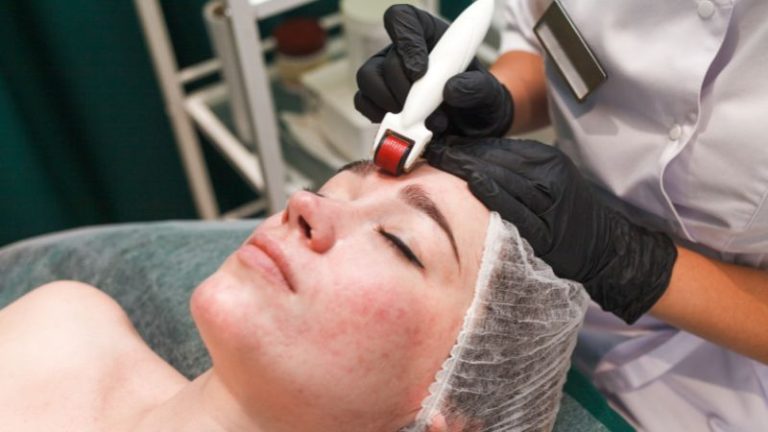Does Smoking Cause Hair Loss? (Risk Factors In Smokers)
Hair loss can mess up our self-confidence and personal well-being. We all know that smoking leads to many health problems that include damaging our lungs and other heart problems but Does Smoking Cause Hair Loss? Can it cause severe hair loss?
In this blog, we shall be diving deep into the discussion of smoking and its effect on our hair. We’ll be considering the researches that have been conducted around this and find out the truth about this.
We all know that it is always genetics and other hormonal imbalances that cause us to experience hair fall but we shall try our best to uncover if smoking works as a catalyst here or not.
Does Smoking Cause Hair Loss?
Many studies have been conducted to find out the relationship between smoking and hair loss but the extract truth is yet to be found. However, some of the extracts of those studies are below.
According to this study, smoking can enhance hormonal effects in an individual by forming DNA adducts that cause damage to hair follicles but at the same time study states that avoiding smoking does not help with improving your hair health.
Another study states that the risk of hair loss on smokes is as twice for non-smokers. This study was done majorly on male smokers.
While these studies provide valuable insights into the potential link between smoking and hair loss, it’s important to note that they primarily establish associations rather than definitive causation.
Beneath these associations lie several possible mechanisms through which smoking may contribute to hair loss:

Impact on Blood Circulation
When you smoke a cigarette, the nicotine and other substances have a huge impact on the blood flow throughout your body including your scalp. It changes the pace of natural blood flow in a human being, thus, this poor blood circulation weakens the hair follicles and eventually causes hair loss.
Oxidative Stress and Inflammation
We all accept the fact that smoking slowly adds up harmful and toxic substances to our bodies and they cause oxidative stress—which causes damage to our cells which are responsible for maintaining our body’s natural mechanisms.
Does Smoking Cause Pattern Baldness? (Androgenetic Alopecia)
Androgenetic alopecia or pattern baldness can be found in both men and women, it is a condition where you experience a bald spot at the crown or having receding hairline.
As stated earlier, if you are someone who might have to experience this at some point in their life, but you are a regular smoker then the hormonal imbalance caused by smoking can escalate the process by elevating hormones like dihydrotestosterone which are directly responsible for damaging the hair growth circle.
Furthermore, as said earlier, since nicotine slows down blood circulation throughout your body and becomes an obstacle for the essential healthy components to reach your scalp and hence you have more likely higher chance to experience pattern baldness.
What is Nicotine-Induced Inflammation?
When you consume tobacco, its macronutrients including nicotine cause inflammation throughout the body as it activates certain white blood cells which are called neutrophils. This inflammation disrupts the normal functioning of our body and gradually narrows our hair follicle and causes severe damage to it.
Other Factors Influencing Hair Loss in Smokers
We have elaborated on all the scientifically researched elements that can eventually lead to experiencing hair loss if you are a smoker. Below are a few other factors that can cause hair loss if you are a smoker.
Lack of Minerals and Vitamins
Smoking automatically lowers the percentage of natural vitamins and minerals in your body. These vitamins include vitamin C, vitamin E, zinc, and biotin—they all are super important for your body to maintain proper hair growth.
Stress Levels
Nicotine dependence can lead to increased stress levels due to its addictive nature. Stress is known to be a contributing factor for various types of hair loss conditions, including Telogen Effluvium (temporary shedding) or exacerbating existing conditions such as Androgenetic Alopecia.
Environmental Factors
Smokers are exposed not only to harmful chemicals present in cigarettes but also to environmental pollutants like secondhand smoke and air pollution. These external factors may further contribute to oxidative stress, inflammation, and overall damage inflicted upon scalp follicles.
Conclusion
In conclusion, this overview emphasizes that multiple studies have revealed significant associations between smoking habits and increased risk or severity of hair loss.
Though the exact mechanisms are yet to be fully understood, factors like impaired blood circulation and heightened oxidative stress/inflammation are believed to contribute.
However, it’s important to consider that individual susceptibility may vary based on genetic factors and other lifestyle elements.
It’s important to note that while smoking might not directly cause hair loss, it appears it could worsen its progression.
Simply quitting smoking might not completely stop these processes but it can improve your overall health—both internally and externally.
We hope this guide solved all your queries related to smoking and hair loss. Stay healthy, live healthy!





